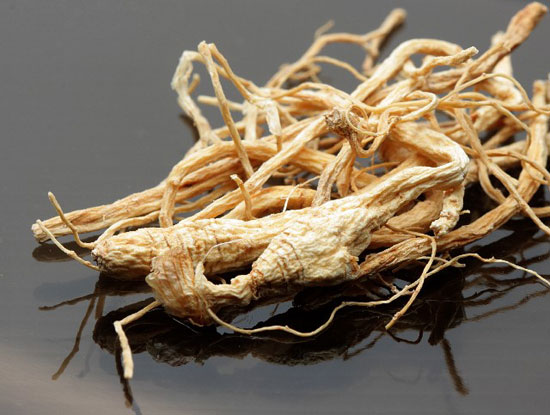Reverse the effects of a high-fat diet with ginseng
Ginseng is a widely used herbal medicine used to treat various diseases. It contains saponins called ginsenosides, which are responsible for its therapeutic properties. A study published in the Journal of Medicinal Food has suggested that ginseng can reverse the effects of eating a high-fat diet.

Researchers from Pusan National Universityin South Korea and the University of Toyamain Japan fermented ginseng in order to assess its effects and compared it with non-fermented ginseng in mice. For the study, they fed mice with a high-fat diet to induce hyperlipidemia, or the abnormally high levels of lipids in the blood.
Then, they treated the mice with 100 milligrams per kilogram body weight of fermented or non-fermented ginseng every day for three weeks. They examined the activities of lipogenic pathways and lipid levels in the liver and plasma.
The results showed that both fermented and non-fermented ginseng improved hepatic lipid transfer protein profiles. Both fermented and non-fermented ginseng improved the levels of triglycerides, which was caused by the consumption of a high-fat diet. The fermentation of ginseng also increased the amount of the ginsenosides.
Based on the findings of the study, the researchers concluded that non-fermented and fermented ginseng can be used to improve or reduce high triglyceride levels caused by consuming a high-fat diet.
Ginseng and its health benefits
Ginseng is a slow-growing, short plant with fleshy roots. It can be classified in three ways, depending on how long it is grown: fresh, white, or red. Fresh ginseng is gathered before four years, while white ginseng is reaped between four and six years. Red ginseng is collected after six or more years. Ginseng has been used as a medicinal plant for centuries, and scientific studies also support its therapeutic effects.
Here are some of its benefits:
• Ginseng may reduce inflammation: Ginseng contains powerful antioxidants that help protect against oxidative stress and may reduce inflammation.
• Ginseng is good for the brain: Studies have shown that ginseng may improve brain functions, such as memory, behavior, and mood. It also induces calmness in healthy people and even in people with Alzheimer’s disease.
• Ginseng can help treat erectile dysfunction: According to research, ginseng can be a potential natural treatment for erectile dysfunction. This is because it contains compounds that may protect against oxidative stress in blood vessels and tissues in the male reproductive organ and help bring back its normal function. It can also enhance the production of nitric oxide, which can help improve muscle relaxation and blood circulation.
• Ginseng strengthens immunity: Studies have shown that ginseng can boost the immune system of people with cancer.
• Ginseng may also lower your risk of cancer: Ginsenosides, an active compound in ginseng, has been shown to regulate inflammation, offer antioxidant protection, and keep the cells healthy. These, in turn, could help lower the risk of certain forms of cancer.
• Ginseng boosts energy: Ginseng is commonly used as an energy booster and to fight fatigue. It does these by reducing oxidative damage and increasing the production of energy in cells.
• Ginseng could help regulate blood sugar: Research has shown that ginseng, particularly red ginseng, may help improve insulin production and blood sugar uptake in cells.
To add ginseng to your diet, you can eat it raw or steam it lightly. You can also make macerate from it, or add it to soups and stir-fry dishes. It can also be taken as a supplement in forms of powder, tablet, capsule, and oil.
yogaesoteric
July 31, 2019
